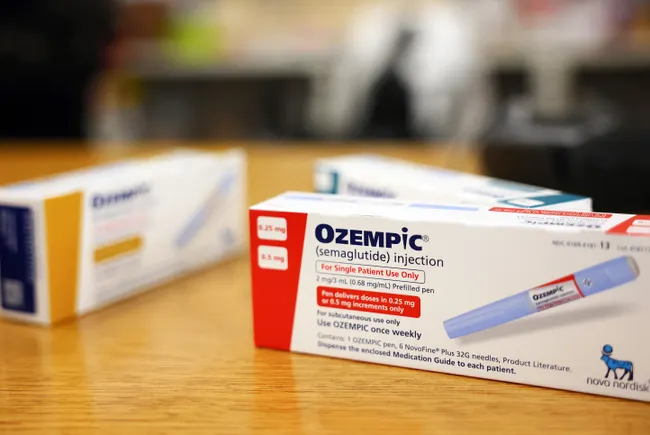Weight Loss Drugs Transforming the Food Industry
Recent data shows that Americans are increasingly turning to weight loss drugs, such as GLP-1s like Ozempic and Wegovy, to shed excess pounds. According to a FAIR Health report, around 6 million adults in the U.S. are currently using these medications, with a whopping 137 million Americans eligible for them. This trend is expected to have a significant impact on the food industry.
One of the key implications for food and beverage companies is the potential decrease in consumption of their products due to the hunger-suppressing effects of GLP-1s. Research has shown that households with individuals taking weight loss drugs have reduced grocery spending, with a Cornell study indicating a 6% decrease.
Addressing this shift in consumer behavior, Bruno Didier from CookUnity emphasized the challenge of enticing individuals who are not hungry to eat again. Understanding how these medications influence diet patterns is crucial, as research from the University of Arkansas reveals that GLP-1s not only reduce calorie intake but also impact food choices.
Consumers on GLP-1s consume 700 fewer calories per day and tend to avoid processed foods, sugary beverages, refined grains, and beef, while increasing their intake of fruits, leafy greens, and water. This presents an opportunity for food companies to offer products that cater to consumers’ nutritional needs while satisfying their cravings.
Companies are responding to these changing preferences by introducing smaller portion sizes, nutrient-rich options, and foods fortified with fiber and vitamins. Nestlé, for instance, launched a line of GLP-1-friendly frozen products featuring whole grains, portion-controlled sandwich melts, and pizzas with cauliflower crust.
Unlike traditional approaches that focused on calorie restriction, the current food market is shifting towards supporting muscle mass retention and maintaining nutrient intake. David Despain from Nestlé Health Science highlighted the importance of maximizing the nutritional value of each calorie and creating foods that are both delicious and intentional.
Furthermore, eating is not just about sustenance but also a social and cultural activity. Companies are now emphasizing the social and experiential aspects of their products to attract consumers in the age of appetite-suppressing medications.
According to Lydia Alexander from Enara Health, food remains a crucial factor for consumers, even with the use of weight loss drugs. Businesses that prioritize care, thoughtful packaging, and nutritional benefits are likely to thrive in the GLP-1 era.
As Alexander aptly puts it, “Food is more important than ever, as it provides an experiential aspect that cannot be overlooked.”

